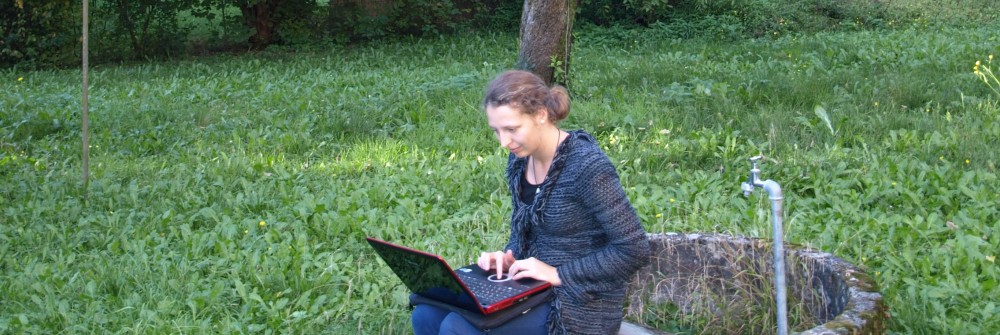“GROW YOUR OWN”
This is a popular phrase in English because Americans and Brits have always thought that home-grown fruits and vegetables taste better. (And marijuana smokers “grow their own” because it´s cheap and sometimes legal way to obtain what they want.) Growing your own—these days–isn´t done so much out of need as out of pride in cultivating one´s own produce and planting varieties that taste especially good. Here in Galicia it is a great way to stay in touch with family traditions, growing vegetables or even making wine or cider.
But many people don´t bother: it´s a lot of work to till the field, spray and fertilize the crops, and prune the trees. These days my neighbors and I complain to each other about the holes in all the cabbages, the brown apples and peaches that fall off the trees before they ripen, and the worms inside.
All over the neighborhood I see the same thing: piles of apples rotting in the garbage dumpsters beside the road. No apples to store for the winter, as in the past, no one with the time or knowledge of the past generation to make apple cider to drink through the year. And new plagues of insects and fungus that were unknown in the past.
So what is the solution? Apples are a case in point. One neighbor tells me she would never spray them with pesticides: “If I wanted poison on them, I would go to the store and buy them. This way, I just make pies and apple sauce out of them. They’re fine.”
But then I look around and see that my neighbor does use some sprays—like the traditional spray of copper and sulfur known as “sulfato.” So what are these sprays, and are they any good? It turns out that there are some real possibilities to improve your fruits and vegetables with sprays and other practices that are safe. Here are some examples.
1. Copper and sulfur sprays (the Galician wonder spray, used for everything!):
SAFE: Spraying recommended quantities (not random overdosing) on tomato plants stops them from turning black. Sprayed on peach trees at leaf fall in autumn or just before buds open in spring prevents peach leaf curl. And sprayed on late-growing semi-tropical fruit trees in the late fall (like lemons and oranges), it stops the trees from growing and protects them against frost!
UNSAFE: Some of my neighbors buy what they think is “sulfato” from the local store, and they buy what is called “ZZ.” The problem is that this is a product containing not only copper and sulfur but also chemical fungicides that may be very dangerous to apply or to consume.
2. Oil Sprays: These are a spray you make with highly refined oil. You spray it on the fruit trees after you prune them in the winter, coating all the branches. This kills the eggs of many insects, so they cannot hatch and damage the trees. This helps, for example, with the worms that you find inside peaches and plums around the pits.
3. “Good Sanitation”: This is like practicing good hygiene, but in the garden. The idea is to stop insects and fungal diseases from reproducing and spreading from year to year. The best way to do this is simply to gather damaged fruit and dispose of it, instead of throwing it away in a compost pile or tossing it aside in the grass beside the orchard. Disposal methods include burning or simply plastic bags of fruit taken to the public dumpster.
And don´t forget to tell your neighbors about this—helping them protect their fruit will help you protect yours. You can even share a load of horse manure from the local riding stable. More about this in next week´s article: “Shovel Your Own”.
